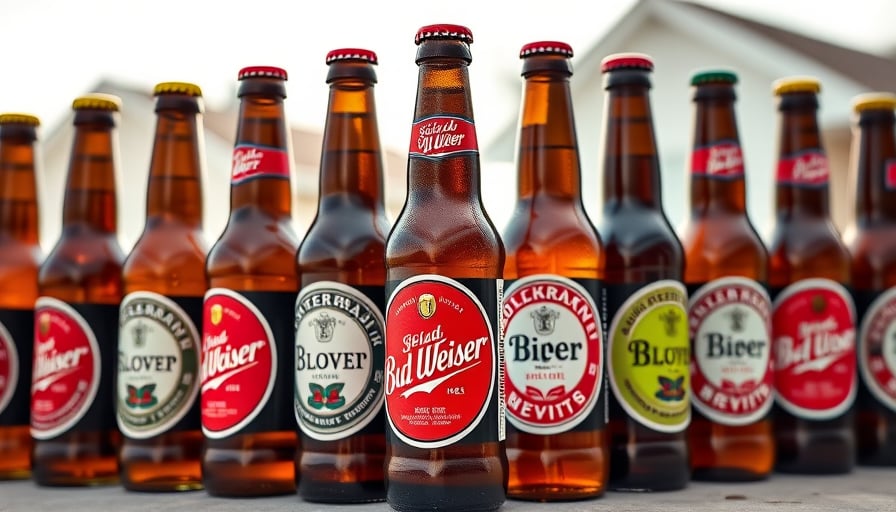Anheuser‑Busch InBev Pursues Entry into the German Market and Faces Legal Challenges
Anheuser‑Busch InBev (AB InBev) has announced a strategic initiative to introduce its flagship brand, Bud Weiser, into Germany—a market characterized by a rich beer heritage and a highly fragmented consumer base. The company plans to launch the brand in Rewe supermarkets this calendar year, with a broader rollout to other retail chains, bars, and on‑premise venues anticipated in 2025.
The decision to target Germany, despite Bud Weiser’s global recognition, reflects AB InBev’s continued commitment to geographic diversification. Germany’s beer industry is dominated by regional microbreweries and established domestic players such as Krombacher, Franziskaner, and Beck’s, which command significant shelf space and consumer loyalty. By securing placement in a prominent supermarket network like Rewe, AB InBev seeks to capitalize on high traffic volumes and the growing trend of premium and craft beer consumption among German consumers.
Market Dynamics and Competitive Positioning
Consumer Preferences
German beer consumers increasingly favor local and craft offerings, yet a sizeable segment still purchases mainstream lagers for convenience and affordability. Bud Weiser’s positioning as a mass‑market lager aligns with this latter segment, but the company must navigate strong brand loyalty to domestic lagers.Retail Landscape
Rewe’s extensive distribution network and strong brand partnership program provide AB InBev with a strategic foothold. Success will hinge on securing favorable shelf placement and promotional support to compete against entrenched local brands and premium imports such as Carlsberg and Heineken.Pricing and Margins
German beer prices are comparatively high, driven by taxation and distribution costs. AB InBev must balance competitive pricing with margin preservation, possibly leveraging its global scale to negotiate lower procurement costs and efficient logistics.
Legal Environment
AB InBev is concurrently dealing with a lawsuit filed by Surfside Vodka Tea concerning the design of its “Skimmers” can. The litigation centers on alleged trademark infringement and design similarity. While the outcome remains uncertain, the case underscores the importance of intellectual property vigilance in the beverage sector, where brand identity is a critical asset.
The lawsuit could impact AB InBev’s brand portfolio and necessitate redesign efforts, potentially affecting short‑term marketing spend. However, the company’s robust legal resources and precedent in defending its brand assets suggest a high likelihood of mitigating adverse outcomes.
Corporate Developments
AB InBev has also announced the re‑introduction of its US Lager brand into the domestic U.S. market. This move signals a dual strategy: expanding in high‑growth international markets while consolidating presence in mature markets through brand refreshes.
Heineken’s Strategic Outlook
Heineken, a key rival in the global brewing arena, has outlined a plan to deliver mid‑single‑digit organic net revenue growth annually through 2030, with a focus on cost efficiencies. The company’s emphasis on disciplined cost management and targeted expansion mirrors AB InBev’s strategic objectives, positioning both firms within a competitive framework that balances growth with profitability.
Investor Perspective
AB InBev’s market capitalization remains robust, and its price‑to‑earnings ratio resides within a reasonable band for the industry. Recent stock volatility is modest, reflecting market uncertainty over the German entry and the Surfside lawsuit. Investors will likely monitor:
- Retail performance of Bud Weiser in Germany, including sales volumes and market share gains.
- Legal proceedings with Surfside Vodka Tea and potential implications for brand management.
- Execution of the US Lager relaunch, assessing whether it delivers anticipated revenue contributions.
Positive outcomes in these areas could reinforce AB InBev’s valuation narrative, while setbacks may prompt reassessments of growth prospects.
Conclusion
AB InBev’s initiative to launch Bud Weiser in Germany represents a calculated expansion into a culturally complex market, leveraging strategic retail partnerships and global operational efficiencies. Concurrently, the company’s engagement in a high‑profile trademark lawsuit and the reintroduction of a legacy brand demonstrate its adaptive approach to safeguarding intellectual property and sustaining growth across multiple geographies. As both AB InBev and Heineken pursue disciplined growth strategies, market observers will continue to scrutinize the interplay between brand positioning, regulatory environments, and macroeconomic trends that shape the global brewing industry.
